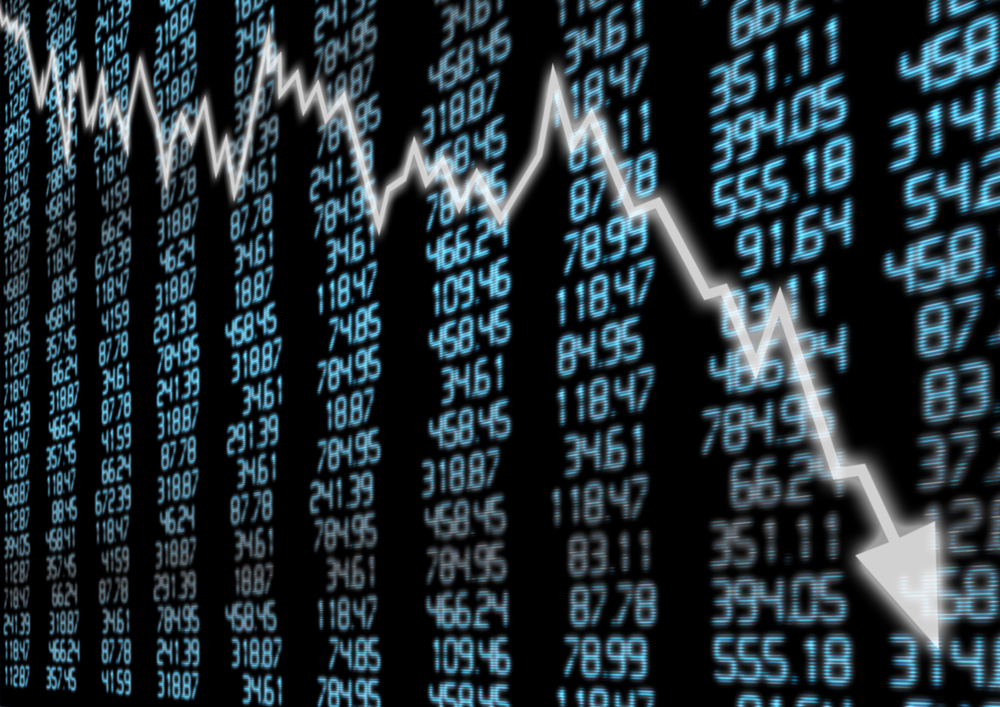Business and Economy
Banks weaken, but small company stocks hold up well
NEW YORK — Trade issues again weighed on the market Thursday as representatives of the auto industry told Congress they opposed tariffs on imported cars and car parts being proposed by the Trump administration. Banks and other large U.S. stocks fell, but smaller and more domestically-focused companies climbed.
Aluminum producers sank after Alcoa said the U.S. tariffs on imported aluminum are costing it $12 million to $14 million a month. The tariffs took effect June 1, and Alcoa is one of the first companies to say how much its business is being hurt by the taxes.
The U.S. imported $335 billion in autos and parts in 2017, so tariffs on those items could dwarf the taxes the administration has placed on imported steel, aluminum, and goods from China, although Trump has also threatened to put tariffs on a much larger portion of Chinese imports.
General Motors and Daimler have both warned that tariffs could have major effects on their businesses. Lindsey Bell, investment strategist with CFRA, said most consumers haven’t noticed the effects of the tariffs yet, but that will change if cars are taxed.
“It will significantly increase the price of a car and the consumer will definitely pull back” on spending, she said, adding that foreign automakers with factories in the U.S. might move those jobs overseas.
“There’s a lot of jobs that could be lost if these tariffs go through,” she said.
Companies that make and distribute drugs fell after the Trump administration proposed changes to government rules on drug price rebates.
Major banks fell as interest rates decreased. Weak second-quarter results also weighed on American Express and Bank of New York Mellon. President Donald Trump told CNBC he is “not happy” the Federal Reserve has been raising interest rates, which had little effect on the stock market but did send bond yields and the dollar slightly lower.
The S&P 500 index slid 11.13 points, or 0.4 per cent, to 2,804.49. The Dow Jones Industrial Average fell 134.79 points, or 0.5 per cent, to 25,064.50. The Nasdaq composite gave up 29.15 points, or 0.4 per cent, to 7,825.30.
The Russell 2000 index of smaller-company stocks rose 9.44 points, or 0.6 per cent, to 1,701.31. Smaller companies tend to do better than larger ones when trade tensions flare up because they do a greater proportion of their sales in the U.S.
General Motors said last month that tariffs on imported cars might cause it to cut jobs in the U.S. Its stock slid 1.4 per cent to $39.31 and Tesla dipped 1.1 per cent to $320.23. Auto parts retailer BorgWarner lost 2.1 per cent to $45.03.
Second-quarter results and forecasts from U.S. companies continued to dominate trading. American Express fell 2.7 per cent to $100.17 after it set aside more money to cover potential bad loans. Bank of New York Mellon lost 5.2 per cent to $52.73.
EBay slumped 10.1 per cent to $34.53 after it reported lower sales than analysts had forecast.
The president’s criticism of the Federal Reserve was unusual, and investors wondered if it could slow the pace of interest rate increases even though the Fed is independent and Trump said he didn’t plan to get involved in its decision-making. For the day, the dollar fell to 112.46 yen from 112.84 yen. The euro fell to $1.1644 from $1.1646.
Bond yields were already falling before Trump’s comments and they fell a bit more afterward. The yield on the 10-year Treasury note fell to 2.83 per cent from 2.87 per cent.
Real estate investment trusts and utilities, which pay big dividends, did far better than the rest of the market. Many investors consider those stocks alternatives to bonds, so they tend to do well when bond yields fall.
Cable and internet provider Comcast said it won’t make another bid for Twenty-First Century Fox’s entertainment business and will instead focus on trying to buy European pay-TV operator Sky. Fox shareholders are scheduled to vote on Disney’s $71 billion offer next week.
Comcast gained 2.6 per cent to $34.91 while Fox fell 0.1 per cent to $46.65. Disney gained 1.3 per cent to $112.13, and in London, shares of Sky fell 1.5 per cent.
Aluminum producer Alcoa sank 13.3 per cent to $41.56 after it forecast a smaller pre-tax profit. It said the tax on imported aluminum is costing it millions every month as it brings in aluminum it has smelted in Canada. Century Aluminum skidded 12.1 per cent to $13.09.
Companies that make and distribute drugs fell after the Trump administration proposed changes to government rules on drug price rebates. AbbVie fell 4.7 per cent to $89.95 and drugstore and pharmacy benefits manager CVS Health shed 2.6 per cent to $66.14.
Benchmark U.S. crude rose 1 per cent to $69.46 per barrel in New York. Brent crude, used to price international oils, fell 0.4 per cent to $72.58 per barrel in London.
Wholesale gasoline stayed put at $2.04 a gallon and heating oil was unchanged at $2.09 a gallon. Natural gas added 1.8 per cent to $2.77 per 1,000 cubic feet.
Gold fell 0.3 per cent to $1,224 an ounce and silver fell 1.1 per cent to $15.40 an ounce. Copper dropped 2.3 per cent to $2.70 a pound.
Germany’s DAX fell 0.6 per cent, as did France’s CAC 40. Britain’s FTSE 100 added 0.1 per cent.
Asian markets finished mostly lower with Japan’s Nikkei 225 losing 0.1 per cent and South Korea’s Kospi shed 0.3 per cent. Hong Kong’s Hang Seng fell 0.4 per cent.






















